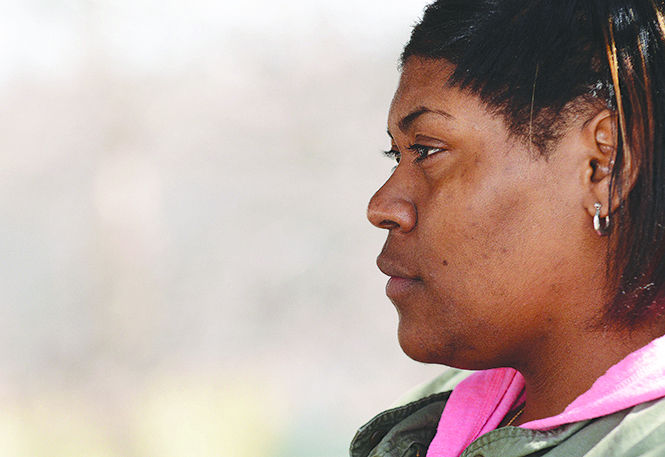Kent student shares experience on partial blindness
April 1, 2015
On Valentine’s Day of 2012, Brianna Bradley, a junior communication studies major, sat in her Lake Hall dorm room, squinting. She noticed her vision was fuzzy, and she put on her glasses, which she normally wore on and off.
Bradley then decided to visit the optometrist to get her eyes checked. She simply thought she might just need a new prescription for her glasses; however, the doctor diagnosed her with keratonconus, an eye disease that causes double and exaggerated vision, eventually leading to blindness.
Bradley shared her experiences of losing her vision with the cast of “Blur,” a play production that will open on April 17 at the Stark campus’ Fine Arts Building.
Performance: “Blur”
Location: Fine Arts Building at Stark campus
6000 Frank Avenue NW
North Canton, Ohio 44720
Dates: April 17, 18, 24 and 25 at 8 p.m.
April 19 and 26 (ASL interpreted) at 2:30 p.m.
Cost: Kent State Students — Free with ID
Non-Kent State Students (17 and under) — $7
Adults — $10
Seniors (55 and over) — $7
The production follows the journey of Dot, played by freshman theater studies major Lauren Paulis, as she learns of her eventual blindness. Dot builds a community to support her as she struggles for independence and self-assertion. The play takes a humorous approach with spirit and hope.
Director Brian Newberg and public relations coordinator for the Stark campus Cynthia Williams brought Bradley and Katie Kimble, a sophomore entrepreneurship major with no sight in her right eye, to the campus to speak with the cast of “Blur.”
“They (Bradley and Kimble) don’t let what’s happening with their eyesight stop them from reaching their goals, and that alone is inspiring to the cast members and to the professor and to myself,” Williams said.
Bradley shared her story to convey what blindness is like through her personal experiences. She said it’s difficult for others to understand what it’s like to live with partial blindness.
“They still have vision,” she said. “There’s no real way to feel what it’s like. It’s about time that we talk about those hidden disabilities.”
Bradley said she hopes the students involved with “Blur” will understand what it is like to try and live the normal life of a college student with failing vision.
“Within six month(s), I practically had no vision in the left eye, but I didn’t tell anyone,” Bradley said. “I was ashamed. I didn’t want to lose my independence.”
When Bradley found out about her eventual blindness, she was already going through financial and personal trials.
Bradley worked two jobs to help pay for her tuition and struggled with depression and bipolar disorder. At the same time, both her grandparents were fighting terminal cancer.
“Everything was all shot to hell,” Bradley said. “I didn’t want to add to it.”
Her grandmother’s condition slowly began to improve, lightening Bradley’s load. Things were finally starting to look up when her vision went out.
With poor vision, Bradley was unable to continue her current job where she separated and sorted files because she couldn’t read the pages.
She resorted to domestic work where she found herself on her hands and knees scrubbing someone’s kitchen floor.
“I have a sense of respect for people who work in domestic work their whole lives,” Bradley said. “I don’t know how they do it.”
Bradley eventually had to quit that job as well because she could no longer drive. Though she didn’t want to, she reached out to a cornea specialist and sign up for disability.
“There’s no easy way to explain what it’s like to be disabled,” Bradley said. “Mine in particular (because) I wasn’t born like this. I’ve had pretty good vision all the way up until I went to college.”
Through all of this, Bradley had one flaw that kept her from reaching out for help and accepting that she needed it: pride.
“My pride won’t let me say, ‘No, I need help,’” she said. “It’s something I’m taking one day at a time, one step at a time.”
Contact Samantha Ickes at [email protected].

















